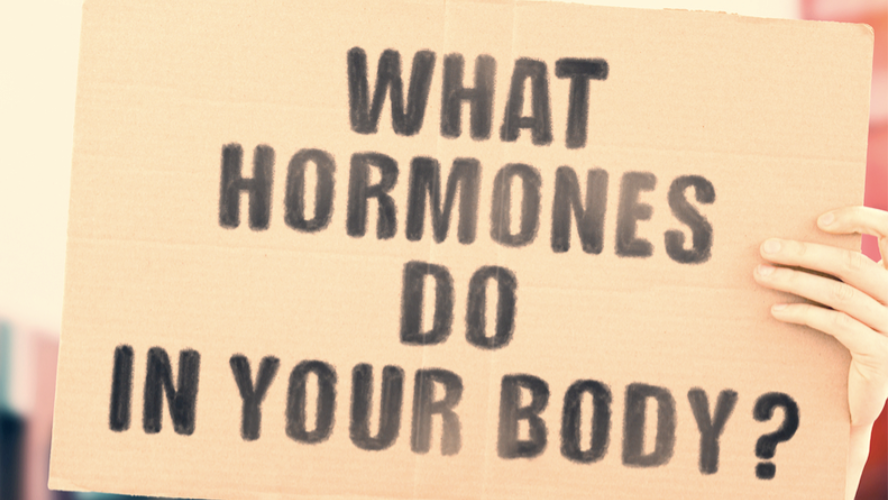Our hormones are responsible for so many aspects of our wellbeing
We often blame them for all sorts of things from mood swings to spots to brain fog.
In women, monthly menstrual cycles, pregnancy, the perimenopause and the menopause are all under the control of the hormones, as they go about their subtle shifts each day.
For something that controls us so much, not all of us know very much about our hormones and what they do
So here’s a few things you might not know about these power houses! .
Progesterone
Progesterone works in conjunction with oestrogen, when one is up, the other is down. These daily cycles control the menstrual cycle and fertility and also affect our mood. Progesterone helps to calm the nervous system meaning that if we’re feeling irritable or blue, our progesterone is probably at the lowest point in our cycle. It’s common for progesterone levels to decrease before our oestrogen does as we head towards menopause, so it’s common to have reduced levels of progesterone in our 40s.
Evening primrose oil can help to counteract mood swings as can maintaining a healthy weight and eating a low fat diet and exercising.
Foods that contain vitamins B6, C and magnesium can also help, so eat plenty of walnuts, bananas, wholegrains, fish, citrus fruits, broccoli, spinach and pumpkin seeds.
Oestrogen
Like progesterone, oestrogen helps to regulate the menstrual cycle but with age it begins to naturally decrease as we approach the perimenopause and menopause. Higher levels are linked to feelings of happiness and calm, so when it decreases, it can lead to mood swings, anxiety and brain fog.
There are herbal remedies that can help to counteract this drop in oestrogen, including agnus cactus and black cohosh. St John’s wort can also help to manage anxiety and a low mood.
Melatonin
This hormone helps to control when we feel sleepy and when we feel more awake. It tends to be produced by the body each evening and stays higher through the night, allowing us to sleep. Each morning levels have dropped allowing us to feel awake during the day.
If you’re feeling tired during the day and awake at night, try taking magnesium supplements to help regulate your melatonin production. Another supplement, called 5-HTP can also help.
Testosterone
Testosterone is a male sex hormone, but it still exists in female bodies, just in much lower concentrations. Low testosterone in women can mean a low sex drive, feeling tired and a loss of self-confidence. It’s also important for maintaining strong bones and muscles.
We can boost our testosterone levels by eating certain foods such as garlic, eggs, oysters, almonds and spinach.
Thyroid hormones
The thyroid gland sits at the base of the neck and produces hormones called liothyronine (T3) and thyroxine (T4). Together, T3 and T4 help to regulate mood, energy and metabolism. Going through the menopause or being under stress can upset the delicate balance of these hormones.
An overactive thyroid can result in weight loss, anxiety and irritability and an underactive thyroid can cause weight gain, low mood and depression.
If you think your thyroid is out of sync, speak to your doctor.
DHEA
DHEA is responsible for making us feel driven and enthusiastic. When we’re young, our levels of DHEA are high but we naturally lose it as we age, leading to exhaustion, low mood and a non-existent sex drive.
Foods rich in omega 3 fatty acids including oily fish, walnuts, flax seeds and chia seeds can help to preserve DHEA for as long as possible. So does remaining free from stress, so make time for relaxation and mindfulness.
If you feel your hormones are causing you issues and want to know more, why not get in touch with one of our experts by visiting here















